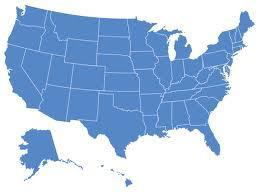A question I often get is about where to incorporate your business. Some popular choices are Nevada, Delaware, and Wyoming.
First, understand that the benefits of forming a corporation or LLC in different states may be outweighed by the cost. Each state requires that you have a registered agent at a physical address for service of process in a lawsuit. So, for example, if you file in Nevada and do business in Texas, you have to pay hundreds of dollars a year to the state of Nevada, pay $100 or so a year for the registered agent in Nevada, then pay the annual fee to Texas for doing business there. Texas, like many states, charges a hefty premium for a “foreign” (out of state) business entity registering to do business within its borders.
Second, understand that where to incorporate your business is a decision largely based on the nature of your business activity and how many owners the company has. If, for example, you buy and sell real estate in Colorado, it makes sense for form a company in Colorado. If you have an Internet business that operates “virtual”, then a no-tax state like Nevada may be beneficial.
If you are the only owner, the other benefits of Nevada and Delaware companies will not benefit you. Companies form in these states because their state laws limit the liability of managers and directors to their co-owners. If you are in dispute with your partners, the law of the state of formation applies, which helps if you are in charge and the other members are not. But, if you are the only member, this hardly benefits you at all.
Third, understand that where to incorporate your business is a decision that you are stuck with. Once you are a Wyoming LLC, you cannot “move” the state of formation to another state. You must dissolve and re-form the company in the state whose laws you want to be bound by.
Finally, it may make sense to form in Delaware or Nevada if you want to use a Series LLC, since most states don’t have Series LLC statutes yet.
